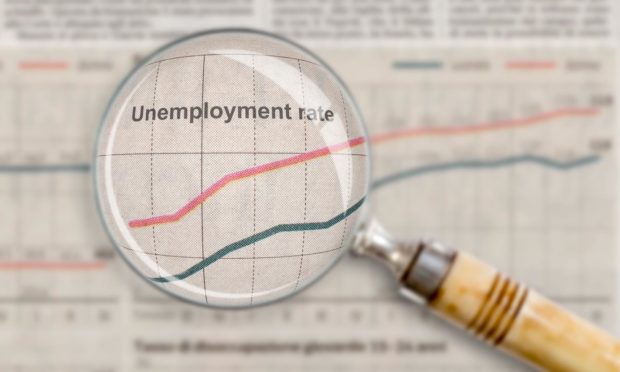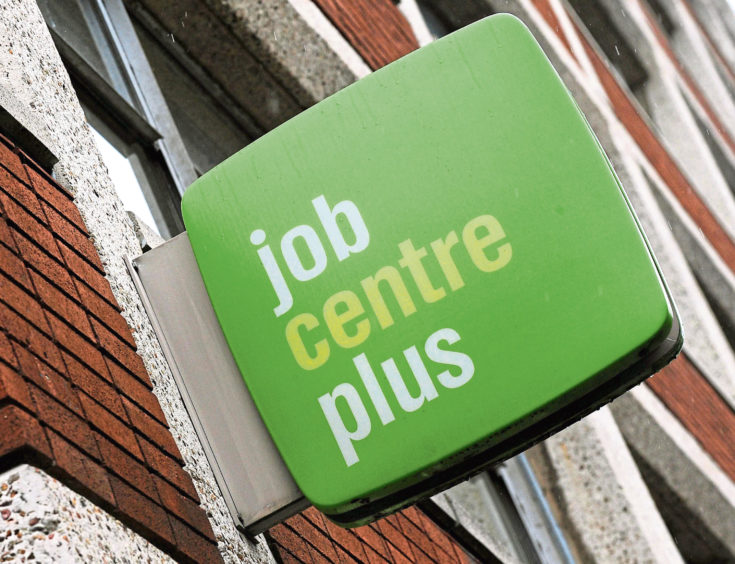The number of job-seeking claimants in Aberdeen city and shire has more than doubled in the past year, by 114% in each council area.
This is above the UK-wide increase of around 100% amid the Covid-19 crisis.
New figures from the Department for Work and Pensions (DWP) office in Invergordon showed only the month-on-month change across the Highlands in May 2021, rather than a year-on-year comparison.
The total number of people receiving Universal Credit – not just those who were unemployed – across the Highland Council area was flat last month at 20,109.
In the Inverness, Badenoch and Strathspey parliamentary constituency the May total was up by 0.1% on the month before, at 9,451.
Alternative claimant count figures from the DWP office in Aberdeen – covering all those people in the “searching for work” bracket – underline a double impact from Covid-19 and an oil and gas downturn in the north-east.
The Granite City total claimant count reached 9,394 last month, a year-on-year increase of 5,000.
Within the total figure, the number of 18-24-year-old claimants rose by 112% to 1,562.
Aberdeenshire’s total claimant count rose by 3,640 people between May 2020 and May 2021, with the number of 18-24-year-old claimants growing by 106% to 1,178.
Paul Walsh, employer and partnership manager, Aberdeen Jobcentre, said: “We have a large focus on 16-to-24-year-olds.
“Through the Kickstart a variety of positions are being advertised in numerous sectors, with both large and small employers getting involved.
“To date, Scotland has achieved over 2,850 placements through the Kickstart scheme and employers have provided great feedback on the benefits these young people bring to their business.
“We continue to engage with local employers to support them to fill vacancies and set up work experience opportunities for our customers.”
Mr Walsh said Job Entry Targeted Support and Job Finding Support schemes were also proving popular, with a steady uptake on this advice and guidance on all aspects of job search.
He added: “We are providing training in the transport, hospitality, cybersecurity, care and construction sectors, upskilling customers to enable them to transition into these industries.
“Other initiatives are planned for the security and warehousing, and renewable energy sectors.”
Opportunities available for a wide range of jobs in the north
Inverness and Ross-shire Jobcentres employer and partnership manager Elma Hall, said firms in the north had “really embraced” Kickstart.
She added: “So far, 178 young people have started placements in Highland, and 61 vacancies are still available based within Inverness and Ross-shire, with new ones being added daily.
“Opportunities are available for a wide range of jobs – from glass and sign-making to accounts assistants, web designers, and engineering workshop and garage assistants.”
Ms Hall added: “There really can be something to help all of our young customers who are looking for work to gain valuable experience.
“If a young person has a specific employer or job they would like some experience of, they should speak with their work coach and we can market opportunities specifically for them.
“Placements are available for home working as well as within employer premises.”
Just over six million people across the UK were on Universal Credit on May 13, an increase of 10,000 people from March 2021 and up from three million on March 12 2020.
Scotland’s unemployment rate increased slightly between February and April this year, to 4.2%, according to the latest figures from the Office for National Statistics. This was below the UK-wide rate of 4.7% for over-16s.
The employment rate for those aged 16 to 64 in Scotland was 74.2%, a 0.1% drop on the previous quarter.
117,000 over-16s out of work
There were 2,657 million people aged 16 and over in employment north of the border between February and April this year, while 117,000 in that age range were unemployed.
Employment and Fair Work Minister Richard Lochhead said: “These figures reflect some of the challenges faced in Scotland’s labour market to date but they do not reflect the full impact of coronavirus (Covid-19) or the outlook for employment, as the Job Retention Scheme continues to help support jobs.
North-east employment decline underlines need for ‘just transition’ to net-zero
“It is crucial the UK Government keep this scheme in place for as long as it is needed.”
Scottish Secretary Alister Jack said the UK Government was “entirely focused” on recovery from coronavirus.
The Job Retention Scheme, due to end on September 30, continues to support nearly 270,000 Scottish jobs, Mr Jack added.



